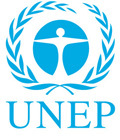The UN Environment Programme (UNEP) has released a report, ‘Emerging Issues for Small Island Developing States (SIDS),' which provides an overview of 20 environmental issues and 15 socio-economic issues critical to the sustainable development of SIDS.
The report discusses, among other challenges facing SIDS, biodiversity damage and loss and climate change, including sea level rise.
The report highlights opportunities for SIDS to move towards a green economy, including through renewable energy resources and terrestrial and oceanic natural resources.
 June 2014: The UN Environment Programme (UNEP) has released a report, titled ‘Emerging Issues for Small Island Developing States (SIDS),’ which provides an overview of 20 environmental issues and 15 socio-economic issues critical to the sustainable development of SIDS. The report discusses, among other challenges facing SIDS, biodiversity damage and loss and climate change, including sea level rise. The report highlights opportunities for SIDS to move towards a green economy, including through renewable energy resources and terrestrial and oceanic natural resources.
June 2014: The UN Environment Programme (UNEP) has released a report, titled ‘Emerging Issues for Small Island Developing States (SIDS),’ which provides an overview of 20 environmental issues and 15 socio-economic issues critical to the sustainable development of SIDS. The report discusses, among other challenges facing SIDS, biodiversity damage and loss and climate change, including sea level rise. The report highlights opportunities for SIDS to move towards a green economy, including through renewable energy resources and terrestrial and oceanic natural resources.
On environmental issues, the report highlights: developing appropriate indicators for SIDS’ sustainable development that go beyond gross domestic product (GDP) and building capacity to transition to a “blue-green” economy; rehabilitating biodiversity and ecosystem services, such as managing invasive alien species (IAS) threats, addressing the food-security-ecosystem nexus and tackling overfishing and the potential collapse of inshore marine ecosystems; and sustainable natural resource use, including degradation and scarcity of freshwater resources. The report also discusses: managing threats from chemicals and wastes, and addressing climate change and its impacts.
On socio-economic issues, the report addresses: diversifying SIDS’ economies; empowering youth to become change agents for sustainability; making tourism sustainable; enhancing disaster preparedness; ensuring food security; promoting integrated water management; and deepening understanding of how climate change damages SIDS’ cultural, economic and social structures.
According to the report, SIDS can reduce the high costs of power and increase their access to sustainable energy through the use of renewable energy. It notes the importance of appropriate policy interventions and public-private partnerships in widening access to renewables, including geothermal, hydro, ocean and wave, solar and wind power. The report showcases how Barbados’ Solar Water Heater Programme has helped the country save US$233.5-237 million in energy costs since the 1970s.
The report is the result of an exercise carried out by UNEP and the UN Department of Economic and Social Affairs (DESA) to identify priority emerging environmental issues of concern to SIDS, following the 2012 UNEP Foresight Process on Emerging Global Environmental Issues.
UNEP released the report on the sidelines of the first UN Environment Assembly (UNEA), which is taking place from 23-27 June 2014, in Nairobi, Kenya. [UNEP Publications Webpage]